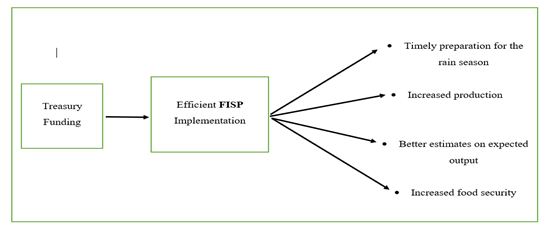A Study of the Effects of Treasury Funding on Efficiency of the Implementation of the Farmers Input Support Programme (FISP) in Zambia
DOI:
https://doi.org/10.5281/zenodo.10805248Keywords:
Agriculture, Subsidy, Input Support Program, Food Security, FundingAbstract
The importance of the success of the FISP and E-Voucher system are that it may result in an increase in income in rural areas, an increase in production and hence the food reserves in the food basket and for individual families and will also provide a means to contribute to GDP in the economy in efforts to diversify the economy. However, the study noted that there existed several challenges regarding implementation of the program. The overall objective of this study therefore was to assess the effect of treasury funding on the implementation of FISP in Zambia. The study took into consideration respondents in the Ministry of Agriculture that are directly involved in the FISP program and receiving funding from the treasury. The study made use of primary data. The study finds that the treasury does engage the Ministry of Agriculture and all relevant ministries, units and departments in obtaining estimates in a consultative forum before providing these estimates in the national budge. However, the study outlines that there are delayed payments from the treasury that affect implementation and therefore preparation and production of farming output. Nevertheless, the study findings further note that challenges in implementation however are not limited to delays in funding by the treasury but the extent to which resources are allocated to the program as opposed to other Ministry activities that would further support the implementation of the program. This is because about 80 percent of the resources are dedicated to the success of the program. The study further outlines that a possible solution would be contract farming and private extension services, however, these would have a restricted reach as they are motivated by ensuring profit. This would render the rural poverty alleviation activities strained.
Downloads

Downloads
Published
How to Cite
Issue
Section
License
Copyright (c) 2024 FELISTUS NGUNI, Lubinda Haabazoka

This work is licensed under a Creative Commons Attribution 4.0 International License.











